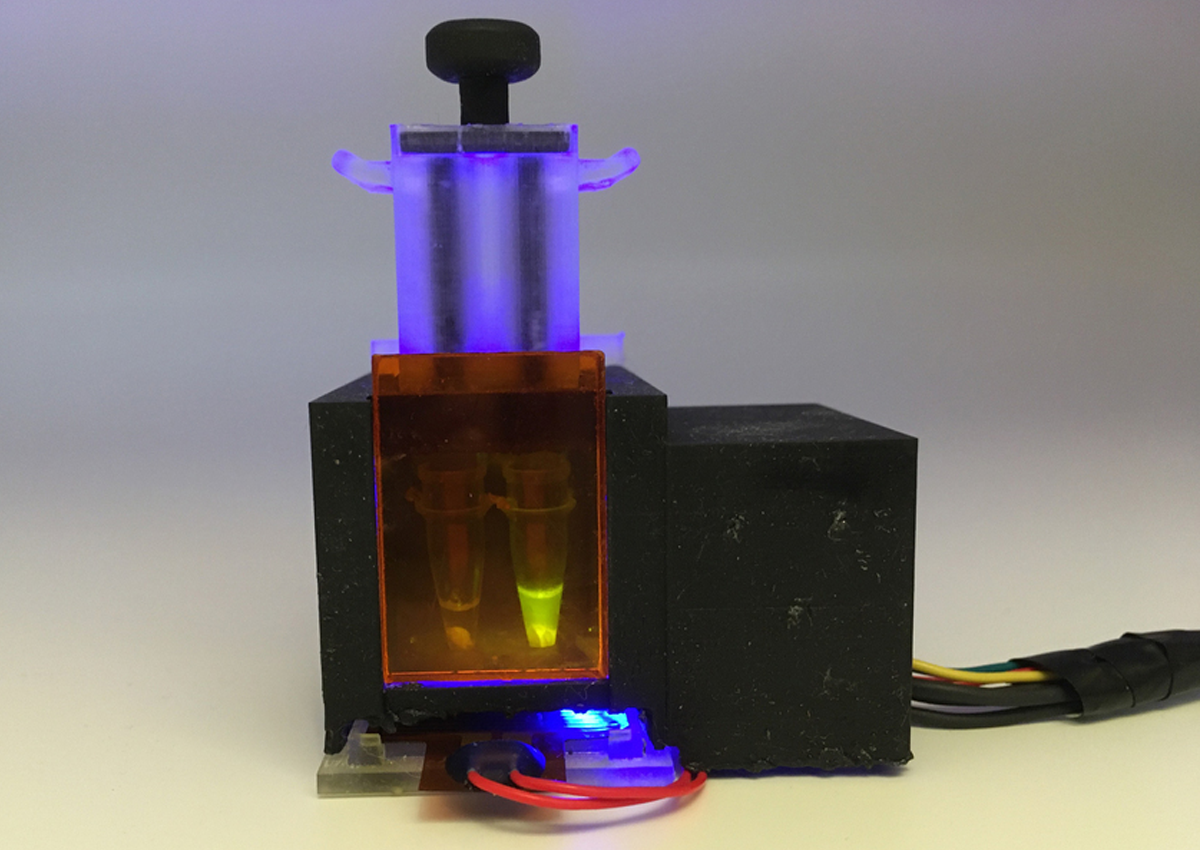
MIT and Harvard University Engineers Design Tabletop Device that Detects SARS-CoV-2 from Saliva in One Hour
August 11, 2021| |
Engineers from the Massachusetts Institute of Technology (MIT) and Harvard University have designed a small tabletop device that can detect SARS-CoV-2 from a saliva sample in about an hour. The diagnostic device relies on CRISPR technology and is just as accurate as the PCR tests now used.
The tabletop device can also be used to detect specific viral mutations linked to some of the SARS-CoV-2 variants that are now circulating, with results that can be obtained within an hour, potentially making it much easier to track different variants of the virus, especially in regions that don't have access to genetic sequencing facilities. James Collins, the Termeer Professor of Medical Engineering and Science in MIT's Institute for Medical Engineering and Science (IMES) and Department of Biological Engineering said that their platform can be programmed to detect new variants that emerge. "In this study, we targeted the U.K., South African, and Brazilian variants, but you could readily adapt the diagnostic platform to address the Delta variant and other ones that are emerging," he added.
The tool can be assembled for about US$15, with costs coming down significantly if the devices will be produced on a large-scale basis. The new diagnostic relies on SHERLOCK, a CRISPR-based tool that Collins and others first reported in 2017. The system includes an RNA guide strand that detects specific target RNA sequences and Cas enzymes that cleave to those sequences and produce a fluorescent signal. The team first tested their device with human saliva spiked with synthetic SARS-CoV-2 RNA sequences, and then with about 50 samples from patients who had tested positive for the virus. They found that the device was just as accurate as the gold standard PCR tests now used, which require nasal swabs and take more time and significantly more hardware and sample handling to yield results.
For more details, read the article in MIT News.
| |
You might also like:
- Facemask Detects COVID-19 Virus in 90 Minutes
- COVID-19 Test Uses CRISPR and Smartphone Camera
- Digital CRISPR-Cas-Assisted Assay for Rapid SARS-CoV-2 Detection
Biotech Updates is a weekly newsletter of ISAAA, a not-for-profit organization. It is distributed for free to over 22,000 subscribers worldwide to inform them about the key developments in biosciences, especially in biotechnology. Your support will help us in our mission to feed the world with knowledge. You can help by donating as little as $10.
-
See more articles:
-
News from Around the World
- IPCC Report: Climate Change Widespread, Rapid, and Intensifying
- Plant Biotech Needs Better Politics to Counter Critics, Encourage Innovation, Build Trust
- Study: GM Plant with Fish Genes to Monitor Harmful Chemicals in Rivers
- HudsonAlpha Develops Computational Tool to Improve Plant Breeding
- Genome Reveals Corn's Secret History
- Asian Countries Shape Up for COPMOP 10
- Research Finds that Plants Grow More to Deal with Heat
-
Plant
- Simple Heat Treatment Boosts CRISPR Efficiency in Arabidopsis
- Researchers Develop Guide RNA Design for CRISPR Applications in Cereals
- Filipino Policymakers, Lawyers Tackle Genome Editing
-
Health
- NIAID Warns about a More Dangerous COVID-19 Variant
- MIT and Harvard University Engineers Design Tabletop Device that Detects SARS-CoV-2 from Saliva in One Hour
-
Read the latest: - Biotech Updates (February 18, 2026)
- Gene Editing Supplement (January 28, 2026)
- Gene Drive Supplement (February 22, 2023)
-
Subscribe to BU: - Share
- Tweet

